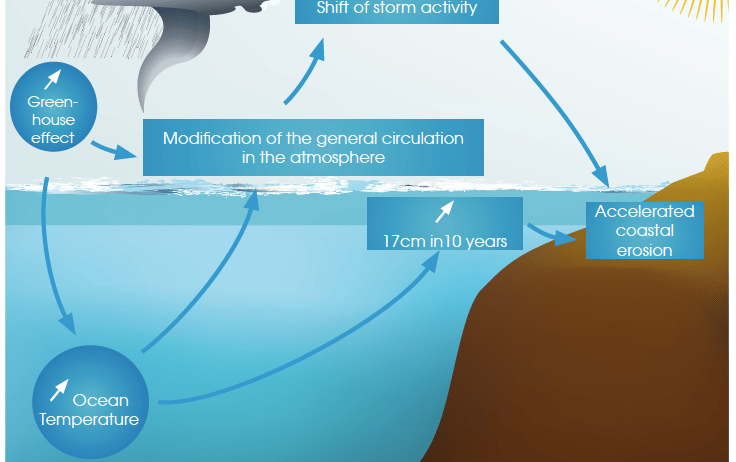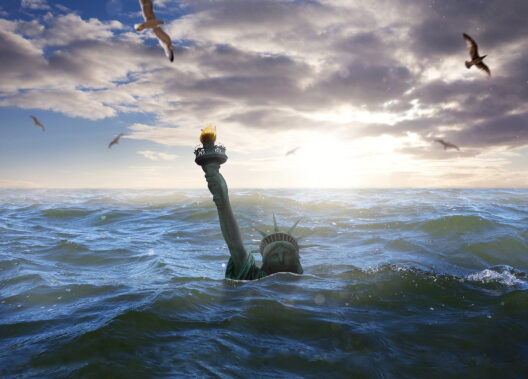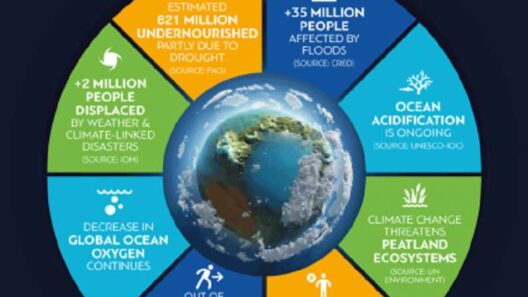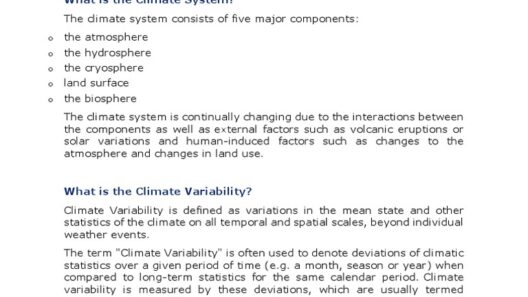The ocean, a vast expanse that covers over 70% of our planet, is a treasure trove of biodiversity and essential resources. However, it is increasingly confronting the dire consequences of climate change. Rising temperatures, ocean acidification, and habitat loss are just the tip of the iceberg in the complex interplay between anthropogenic activities and marine ecosystems. This article delves into how climate change is poised to alter the oceanic landscape dramatically, examining the various dimensions of this multifaceted issue.
Climate change is not merely an abstract concept; it is a reality that has already begun to manifest in our oceans. One of the most alarming effects is the phenomenon of ocean warming. As global temperatures rise, the ocean absorbs approximately 90% of this excess heat. This warming has significant implications for marine life and oceanic systems.
Rising sea temperatures disrupt the delicate balance of marine ecosystems. Warmer waters can lead to coral bleaching, where coral polyps expel the symbiotic algae that provide them with nutrients. This not only leads to the death of coral reefs—a crucial habitat for countless marine species—but also affects the livelihoods of millions who depend on these ecosystems for fishing and tourism.
The implications are profound. Coral reefs, often referred to as the “rainforests of the sea,” support an astounding variety of marine life, from small fish to larger predators. The degradation of these habitats due to increased temperature creates a cascading effect throughout the food web, leading to a decline in fish populations and the overall health of marine ecosystems.
Ocean acidification is another pressing issue exacerbated by climate change. As the atmosphere warms due to excess carbon dioxide (CO2), the ocean acts as a sink, absorbing about a quarter of this greenhouse gas. This absorption process leads to increased concentrations of carbonic acid in seawater, which lowers the pH of ocean water. This shift toward acidity poses a significant threat to various marine organisms, particularly those with calcium carbonate structures, including mollusks, echinoderms, and even certain plankton species.
The molecular consequences of acidification are profound. For organisms like oysters and corals, the reduced availability of carbonate ions hampers their ability to construct shells and skeletons, ultimately impacting their growth and survival rates. The ramifications extend to commercial fisheries and aquaculture, threatening food security and the economic stability of coastal communities that rely on these resources.
Additionally, climate change influences ocean circulation patterns, which play a critical role in regulating climate and weather systems globally. The alteration of these currents can lead to shifts in weather patterns, influencing monsoon systems, hurricanes, and even the distribution of marine species. Changes in currents can exacerbate the phenomenon of marine heatwaves, which have far-reaching consequences for both marine life and human communities.
Maritime ecosystems are intertwined with our climate system in complex ways. The interaction between the ocean and atmospheric dynamics means that changes initiated by climate change in one domain will invariably impact the other. For instance, the melting of polar ice caps is not just a visual representation of climate change; it is also a direct contributor to rising sea level, a daunting reality faced by coastal populations.
As polar ice melts, freshwater influx into ocean systems disrupts salinity and stratification patterns. This alteration can affect phytoplankton growth—the foundation of the marine food web—ultimately impacting the species that rely on these diminutive plants, from small fish to the majestic blue whale. The entire marine ecosystem may be thrown into disarray, with unpredictable consequences for biodiversity and human communities alike.
One cannot overlook the socio-economic implications of these environmental changes. Coastal communities, often among the most vulnerable, are at the frontlines of climate change impacts on the ocean. Fisheries may collapse due to changing species distributions, while rising sea levels threaten to inundate low-lying areas, displacing populations and disrupting livelihoods.
The deep connection between human wellbeing and ocean health cannot be overstated. Healthy oceans are vital for clean air, climate regulation, and food security. The degradation of ocean ecosystems will not only challenge biodiversity but will directly affect human populations, economies, and cultural identities.
Addressing climate change’s impacts on the ocean requires collective action and innovative solutions. Policymakers, scientists, and communities must come together to implement sustainable practices and policies that mitigate these effects. Initiatives such as marine protected areas, sustainable fisheries management, and international agreements like the Paris Accord are crucial steps towards preserving ocean health.
In conclusion, the ocean’s fate is inextricably linked to our actions. The effects of climate change are profound, reverberating through ecosystems and human communities alike. A deeper understanding of this complex relationship can inspire robust efforts to protect our oceans, ensuring their vitality for generations to come. The time for action is now; the complexity of the ocean’s plight demands our attention, ingenuity, and commitment to a sustainable future.








